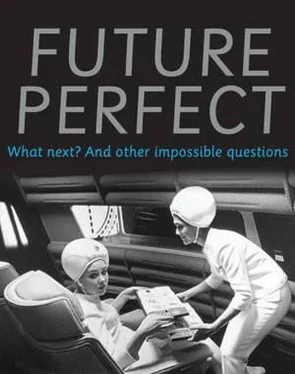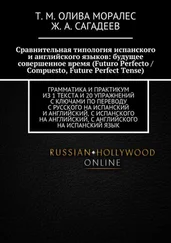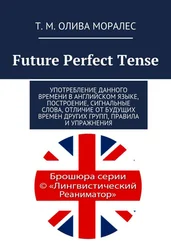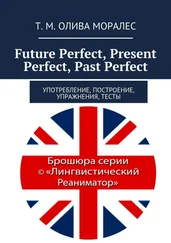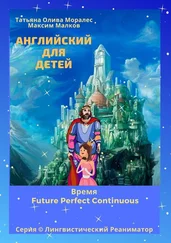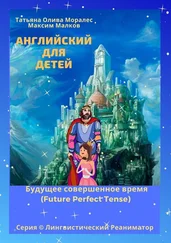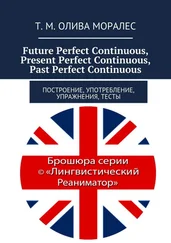Mortgage consultants, fashion-model etiquette advisers (I kid you not), luxury-goods experts, fifth-layer management meeting attenders, consulting consenting consultants, marketing gurus, lifestyle coaches, people to help you rearrange your clothes cabinet and knicker drawers-these are the earners of our age, often scoring twice the salary of a Nobel Prize winner and ten times the earnings of a post-doc lab researcher with three degrees.
I could go on.
An ABC science reporter with a PhD and six years’ experience (or maybe a five-year, first-class-honours veterinary science degree) will earn the same as a freelance office cleaner and a third less than a truck driver. Not that a truck driver shouldn’t be properly compensated, but the time he spends qualifying is not, shall we say, commensurate. (As I write I see an ad for an ABC science programs commissioning editor requiring plenty of experience. Salary $83,000.)
What’s the answer? How do you convince young Australians-or young Americans, for that matter-that science should be studied? Well, it won’t be by following the example of Education Minister Julie Bishop when, after the latest crisis erupted, she popped up on ABC-TV and earnestly, beseechingly, gave the traditional oration asking Australian kids to commit to a lifetime of hard toil and penury.
There are, of course, degrees with built-in job tickets: dentistry, medicine, computer science and vet science. Student numbers are maintained here, even though the extra cost of the training and apparatus these courses demand requires foundations to be set up to support them. Even forensic science degrees have received floods of applicants, although the paucity of jobs at the other end belies the impression given by CSI and Silent Witness . Fortunately, the courses are ideal preparation for work in environmental jobs so they turn out to be worthwhile as career preparation. But we all need science like everyone needs music. If you are keen on singing or piano, you are not expected automatically to go to the Conservatorium, do concerts as a soloist and conduct a symphony orchestra. Most of us just have an iPod and a record collection. So what if there is no direct job ticket?
Science must be studied at schools, from primary level onwards, because it is essential to life. Aside from the five I gave at the start of this chapter, there is a much more immediate reason that might convince youngsters and their parents. Every job of the 21st century needs some science. Judges and lawyers have to know about DNA and forensic evidence, farmers must understand genetics and chemicals, cooks must be au fait with nutrition, Salmonella and botulinum, business people need to know about IT, and architects about energy and water. Teachers need psychology, prostitutes prophylactics, sportspeople pharmaceuticals, stockbrokers bio-investments, cleaners recycling, carpenters forestry, fishers ichthyology (before fish all die out), and beauticians health care. And everyone needs to know about the environment. Or else!
But is this not a confidence trick? Yes, we all bump into science and technology along the way, but surely it can be left to the boffin in the dreary coat. And surely the professions use only a gloss of science that their practitioners can get by without knowing about.
No, what I am prepared to assert is that you make a far better professional with a solid scientific acculturation. You do not need expertise in rocket propulsion or brain surgery to run a business, but it will help to be scientifically literate and to know how to analyse proposals. This is why it is not a surprise to find people with geophysics or biochemistry degrees in investment banking.
But what about English, French translation or Latin? Science helps with each one. In English there is a way to put word patterns into a computer to tell whether Shakespeare really did write Shakespeare’s plays. Someone decided to do this with Iris Murdoch’s novels and found that her last book used language differently from her others, indicating the onset of Alzheimer’s disease long before the doctors picked it up.
Fiction writers often utilise science as material-Peter Carey in Oscar and Luanda , Ian McEwan in Saturday and Margaret Atwood in most of her books. Michael Crichton (himself anthropologically trained and a doctor) made a big hit with Jurassic Park and did science a disservice in State of Fear , with its bizarre line on climate change.
It is when you talk to writers-or actors-that you learn how deeply they need to understand science. David Williamson’s last few plays-to take just one example- were a tour de force on the uses and abuses of psychology. Williamson studied both that subject and engineering, on which he later lectured.
French translation? Surely not? In fact my brother, at the University of Nantes in Brittany, uses IT, dubbed TV news reports and cognitive science to give his students an interactive way to practise conversation. It can be done from English to French or vice versa-or in any other languages they might choose.
Latin humanism Professor Yasmin Haskell at the University of Western Australia has discovered a trove of poems from renaissance Italy in which medicine (hypochondria; chocolate therapy) is discussed. They give new insight into the thinking of that era. And although habits are changing, doctors and botanists still need Latin to some extent. The point is that the disciplines intermingle.
So what is the lesson for schools and universities? That science must be attached to every subject . As chair of the National Commission for Environmental Education, I visited several campuses (ANU, Murdoch, Macquarie) to propose that teaching about the environment be incorporated into every faculty. None of the deans we met objected. This is not a quixotic idea. Professor George Seddon, for example, one of our greatest thinkers on the environment (he’s been professor in four distinct disciplines, no less: English, Environment, Geology and Philosophy!) has written brilliantly about the influence of literature on how we think of nature and landscape and how we care for both as a result. Science could similarly be linked to law (as it already is at UNSW and Melbourne University), building and architecture, commerce, the arts and sport.
If other universities follow the example set by Vice-Chancellor Glyn Davis at the University of Melbourne and favour general degrees, with specialisation coming only at postgraduate level, this universal distribution of science will be straightforward. What would that do for recruitment to scientific professions? According to a former federal education minister, John Dawkins, it can only do it good. Dawkins says the top science performers will always select themselves; others, having been allowed to study science to tertiary level without feeling a white coat must follow, may opt for one anyway.
Money incentives help too. The former speaker of the US House of Representatives, Republican Newt Gingrich, himself a keen dinosaur man, has proposed that American high schoolers choosing science in Years 10-12 be paid the equivalent of a McSalary-what they would earn serving fast food. In Australia one sensible measure would be to reduce university science students’ HECS debt, which is now punitive and exceeds, on average, the amount owed by other students (can anyone really be surprised that labs are emptying?)
At school, why not pay science teachers more? It takes a generation to train new ones, so in the meantime we should try to recruit retired science professionals, as well as engineers, to fill the gap. This measure did not frighten our Council on Environmental Education either, though I thought it would. Implementation is another thing. But it is already happening in some places, so examples can be learned from.
Читать дальше
